10 Things You Must Not Forget When in Malaysia [2023]
A lot of tourists visit Malaysia as it is a good destination known for its rainforests, beaches, rich history, and scrumptious food. Everyone who visits this country enjoys a quick getaway into this tropical paradise.
There are a few things that every traveler should know before they book a trip or call a travel agency. We listed tips for tourists in Malaysia, guides on etiquette, and safety and travel requirements.
Things to Know Before Traveling to Malaysia
Preparing for Your Trip to Malaysia: 10 Tips for Tourists
If you are planning your first trip to Malaysia, here are a few helpful tips that will make your trip hassle-free, safe, and fun.
1. Try the local cuisine and hawker stalls.
Malaysia is a haven for food lovers, especially because the locals themselves are very passionate about their local food which is bursting with rich flavors. You will miss out on savory dishes if you are a picky eater.
There are plenty of Malay food, delicacies, and street food that you should indulge in. But, the local cuisine is best served and chomped off the streets and in local establishments.
While food delivery is convenient, eating in local restaurants or night markets is an experience that will make your trip extra memorable, particularly your first taste. Likewise, you will find that food here is cheap.
Moreover, stalls in hawker centers are also a staple in Malaysia. These large open-air areas usually sell inexpensive street food that you might discover to be better than fancy restaurants.
Just as how diverse Malaysia is, so is the food. In addition to Malay cuisine, you will also be able to taste Chinese, Indian, Thai, and Vietnamese cuisine.
When in Malaysia, you should remember that food is a sensitive topic so do not debate with the locals about it, and do not insult Malaysian food in a local’s presence.
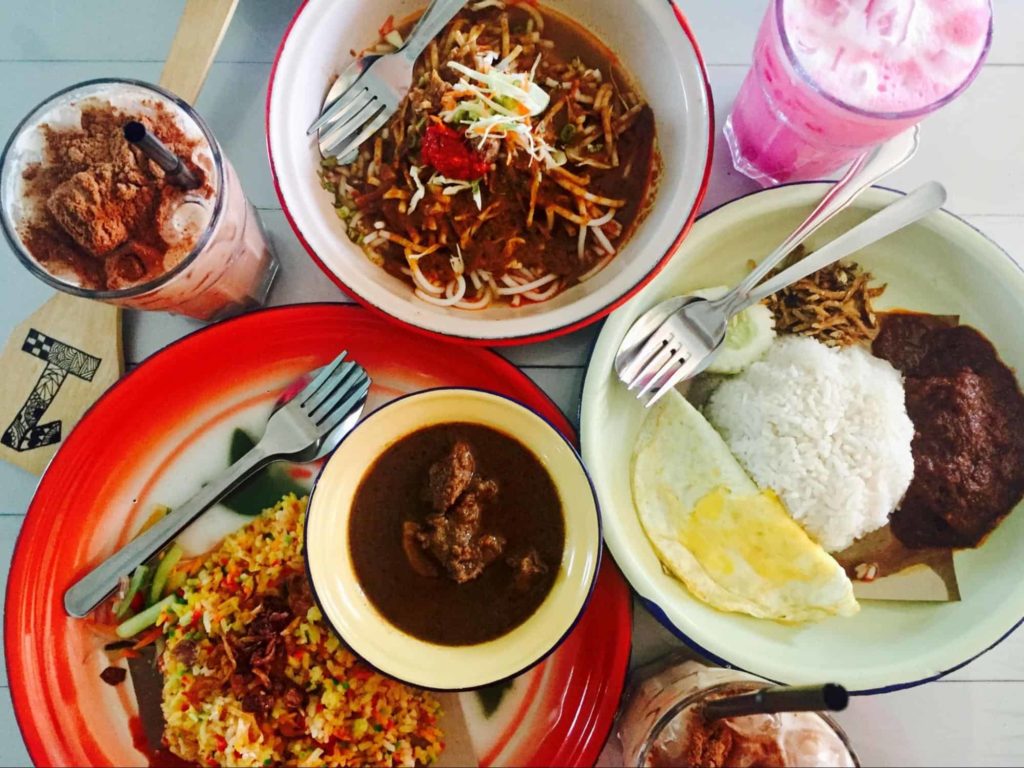
2. Speaking in English is fine.
Malay is the official language of Malaysia, so it is widely used in the country. However, English is also spoken by the majority of the country, particularly in the bigger and more well-known tourist destinations.
This is why even if you cannot speak the local language, you can still communicate with the locals in English. Many locals even prefer to talk with foreigners in English.
You will also notice that a lot of the signs, ticket machines, menus, and information stands in Malaysia are available in English. You will not have any issues getting around.
However, it is important to remember that you should not be critical of locals who have poor English skills.
You can also pick up some helpful phrases that will be handy when you go on a trip to Malaysia!
How to Speak Basic Malay Phrases
3. Use the local sim card.
Finding an establishment that offers stable access to the Internet in Malaysia is easy, particularly in the cities, so it is one thing you will not worry about. Almost all of the hotels, shopping malls, and cafes are equipped with free Wifi.
Nevertheless, cellular signals and data in Malaysia are quite great because of the comprehensive networks.
Having a local sim card will be convenient if you choose not to depend on Wifi and you do not want to be burdened by international roaming charges. In case of an emergency or power outage, you will also be able to quickly contact local numbers.
You can simply buy a sim card when you arrive at the airport, or convenience stores and corner shops.
4. Know which type of transportation to use.
Renting a car and driving by yourself is recommended for tourists who will travel across the country for days and do not mind the costs. This is the most expensive mode of transportation when traveling in Malaysia.
But Malaysia’s public transportation system is comprehensive, well-organized, convenient, and inexpensive, whether intercity or interstate.
The best way for tourists to travel in Malaysia is by using public transportation, such as buses and trains. These are cheaper than renting a car or hailing a taxi.
There are also bus and train stations available in most of the major towns in Malaysia so it is convenient to travel by bus or train.
However, you should know that some routes quickly book up, and some only depart for an hour or two every day. Some stations have online bookings while others can only be bought physically.
It is better to ask for the help of the receptionist or concierge of your accommodation for assistance.
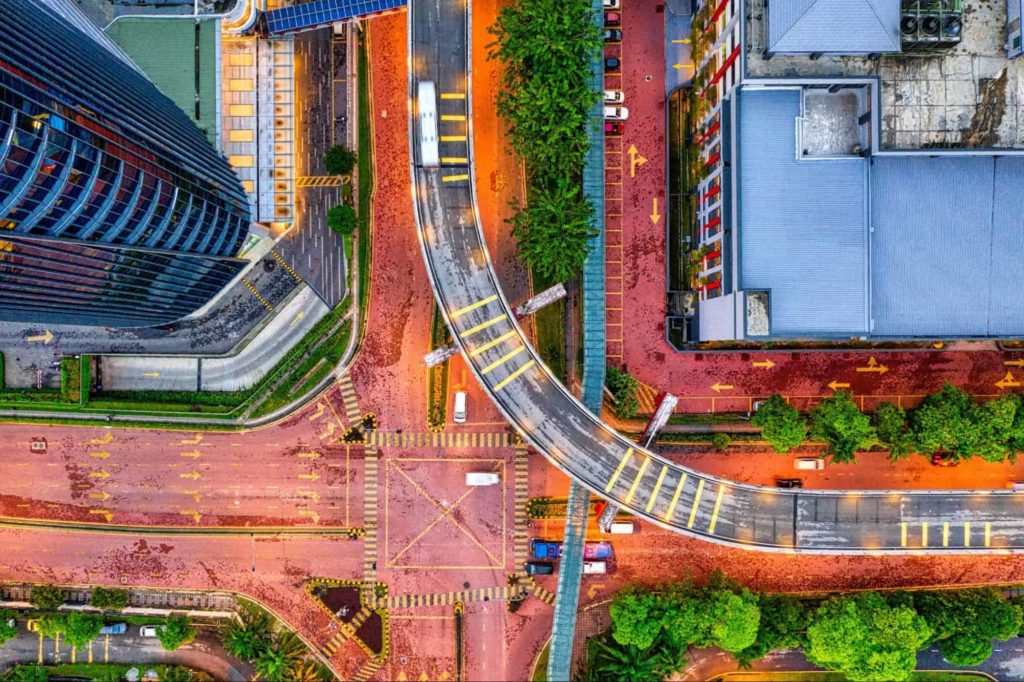
5. Avoid the unmetered taxis.
Taking a taxi is the fastest way to get around the country. Unfortunately, taxis in Malaysia have gained a bad reputation over time and it is not advisable to use them if you are a tourist.
Although most taxis base the fare on metered rates, some drivers do not switch on the meters. Instead, they charge overpriced rates, especially to tourists.
You should be careful before getting in the taxi and be attentive if the driver is using the meter, in case you are left without any option.
Other drivers would take the long and congested route if a passenger insists on having the meter on.
Another option if you want a faster transportation option is e-hailing apps like Grab, which most tourists recommend. It is even more affordable and more reliable than taxis.
6. Bring cash with you.
A lot of establishments, shops, and restaurants in Malaysia offer cashless transactions. They process payments through major debit or credit cards, payment gateways, and even through other eWallet payment apps like AliPay and GrabPay.
You might think you do not need much cash when traveling in Malaysia because of the prevalence of cashless payments.
But, there are some stalls like those in the countryside or in hawker centers that only accept cash payments. Plus, cash is also used to pay for the fares in public transit.
These are just some of the reasons why you should have a decent amount of cash in the local currency, the Ringgit, when you are traveling in Malaysia.
If it is your first time going to Malaysia, you should know that ATMs are not accessible in many tourist destinations in rural areas.
For this reason, make sure that you have enough cash you can spend during your trip before you leave the city and head to the islands or countryside.
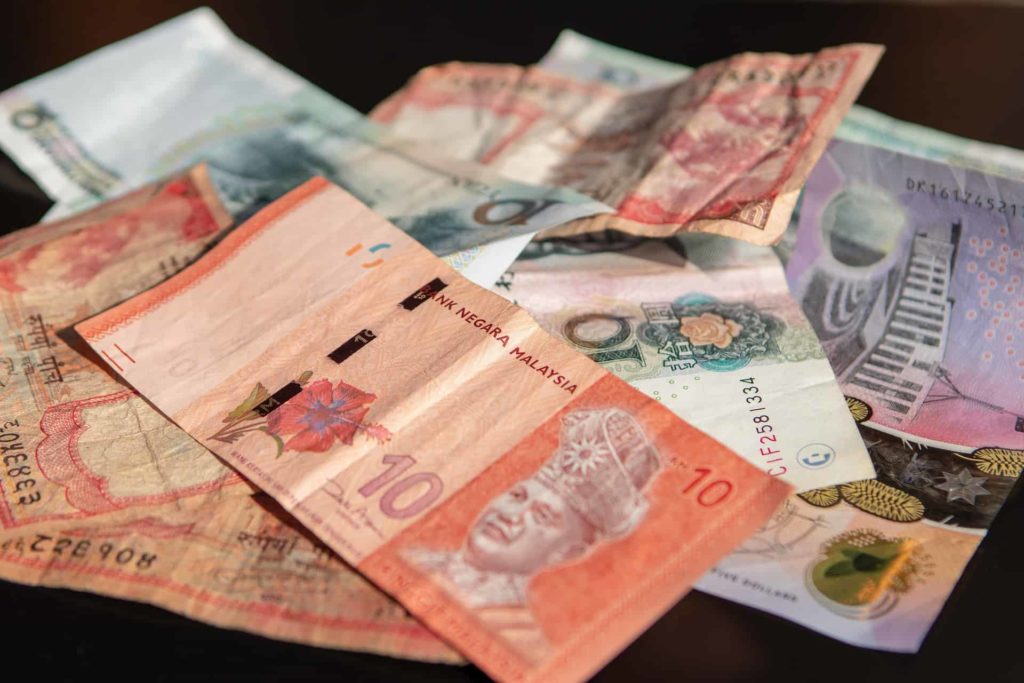
7. Know how to handle the Malaysian Ringgit.
When you are in Malaysia, there are a few things about the local currency and etiquette that you should know, especially about handling cash.
Only exchange money once you arrive in Malaysia.
Since you are expected to use Ringgit for your transactions, you should know that it is not legal to trade the Ringgit outside of Malaysia. As such, you can only exchange cash upon arriving in the country.
Meanwhile, there are exchange bureaus that offer exchange yet the rates are not that good, unlike the conversion rates in Malaysia.
Although it is possible to exchange currencies in the airport or hotel, it is not much recommended because of the higher fees. In banks and currency exchange desks, exchanging currencies cost more.
As a general rule, you should use a money changer available in towns so you can get a better deal because of the better and more generous rates.
Furthermore, Ringgit cannot be freely convertible in countries outside of Southeast Asia so you should convert your excess Ringgit to your local currency before you leave the country.
Ask before you tip.
As a general rule, tipping is not common and seldom necessary in Malaysia. It is most likely that the server will return the money if you leave it on the table.
This is why if you were provided a good service, you should ask before you leave a tip.
Restaurants, cafes, and other establishments in Malaysia charge a service charge of 10% and a Goods and Services Tax of 6% on top of the bill. So, there is no need to tip.
There is also no need to give extra tips to taxi drivers, tour guides, or hairdressers. You just need to pay an exact amount.
However, if you want to show appreciation, especially if you feel like they were very helpful, then you could offer a modest tip.
Do not give alms to beggars.
You may notice beggars, particularly children and women with babies when you stroll on the streets. Some people may also approach you and say that they are raising funds for orphanages or schools.
You really should not give alms, even if you are tempted to help.
Some of the children you see have parents who plan on prying on tourists. Meanwhile, some of these beggars are part of begging syndicates and victims of human trafficking.
So, instead of giving money, it is better to offer and give these beggars food instead.
8. Do not drink tap water without boiling it.
In Malaysia, it is not safe to drink tap water if not filtered. However, it is safe to use tap water for showering.
You should not drink tap water directly to avoid getting sick. It is safer to boil the tap water before drinking it to kill the bacteria, or to buy mineral or bottled waters in supermarkets and minimarts.
Many hotels offer filtered water and allow guests to bring water containers they can refill. This is essentially more budget-friendly, so do not forget to bring a reusable water bottle with you.
If you are going on multi-day hikes, you should bring a water filtration system or use a purifying tablet.
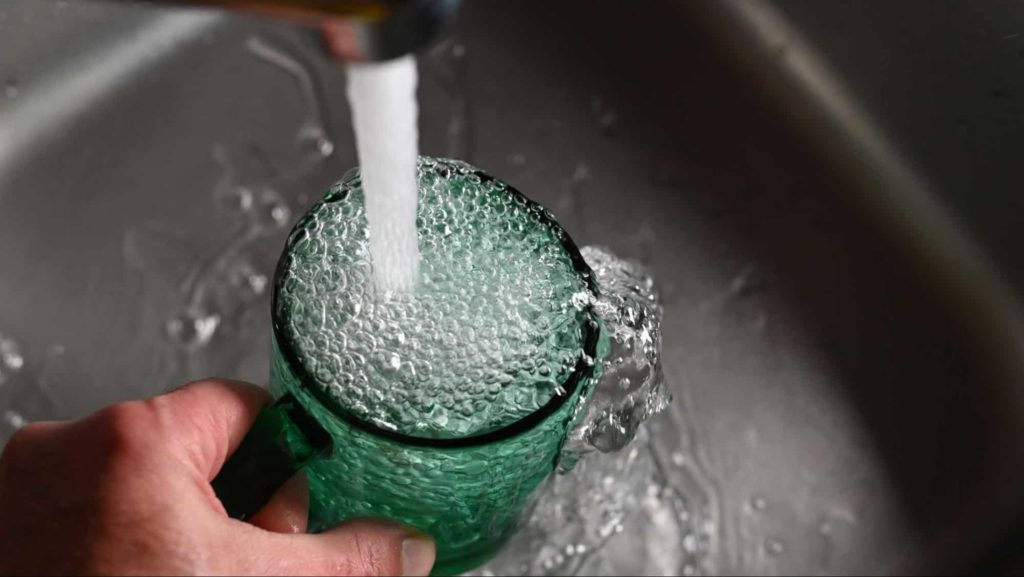
9. Be respectful when bargaining.
Bargaining is very common in Malaysia, so much so that it is part of their culture.
This is a good way to interact with the locals. Additionally, you will most probably get a good deal in souvenir shops, bazaars, local and night markets, and some retail outlets when you haggle.
However, there are some rules you should know when bartering so you will do it right and you will not offend anybody.
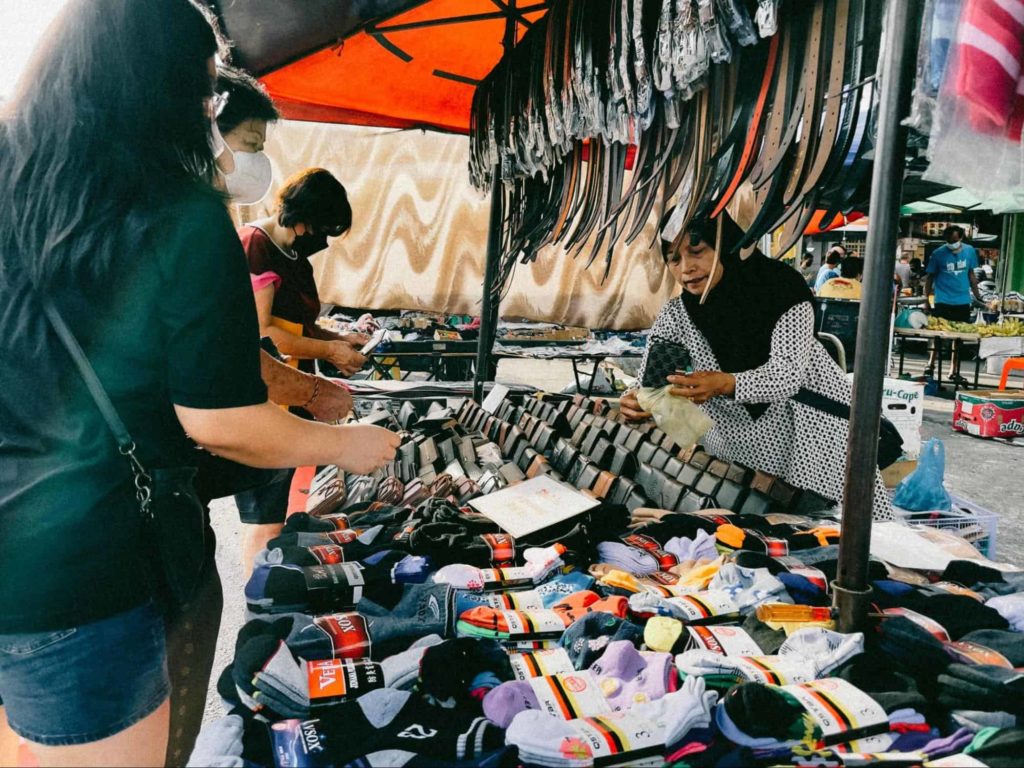
10. Follow the local etiquette.
If you are visiting a foreign country, it is important to know and respect the culture.
Malaysia is predominantly an Islamic state but there are various ethnicities and religions so there is a combination of local etiquette that you should observe.
Here are a couple of tips on etiquette that you should know before going to Malaysia so as not to offend the locals:
Respect the Locals
Malaysians are known for being kind and welcoming so you should not fear talking to them. It is just natural to repay their hospitality by the following:
- Don’t raise your voice when talking to a local. Furthermore, do not show anger or frustration with the locals because they tend to be embarrassed and offended if you lose your cool.
- Ask before taking photos of the locals. Do not assume it is okay to take photos because they often smile even when they are uncomfortable and shy.
- Address people properly by using “Encik”, “Puan” or “Cik” which respectively means Mr., Mrs., and Miss. Some are also conferred with titles by the government, like “Tun”, “Tan Sri”, “Dato”, and “Datuk”, which you should also use when addressing them.
- Show respect towards nature and local beliefs. Malaysians are very superstitious and their belief in the supernatural world even predates the arrival of the Islamic belief in the country.
How to Greet Properly in Malaysia
Handshakes are a friendly manner of greeting someone at social events. As a general rule, you should not extend your hand for a handshake, except if it is offered first to you.
Here are the proper ways to greet locals:
- You should also use your right hand when shaking hands. This is because the left hand is called the “toilet hand”.
- If you are greeting someone older than you, you may nod your head or bow slightly to show reverence.
- The proper and traditional way to greet people in Malaysia is called “Salam”.
Salam: The Malaysian Way of Greeting
How do Malaysians greet each other?
- Assalam
- Assalamu alaikum
- Assalamu alaikum wa rahmatullahi wa barakatuh
What is the proper response?
- Wa’alaikumussalam
- Wa’ alaikumus salaam wa rahmatullahi wa barakatuh
What is the hand gesture for the Salam?
- The Salam looks like a handshake but without grasping the hands of the other person. This gesture means, “I greet you from my heart”.
- Extend both hands out to lightly touch the stretched-out hands of the other person.
- Put both hands to your chest as a gesture of sincerity and give a slight bow.
- The other person will reciprocate the same.
Are there alternative ways to greet people in Malaysia?
- Bow slightly with your hands put together.
- As a general rule, you should put both hands in the center of your chest and bow slightly.
- The bow will depend on the age or status of the person you are greeting. The hands should be in a higher position on the body depending on how important the other person is.
Dress and act appropriately.
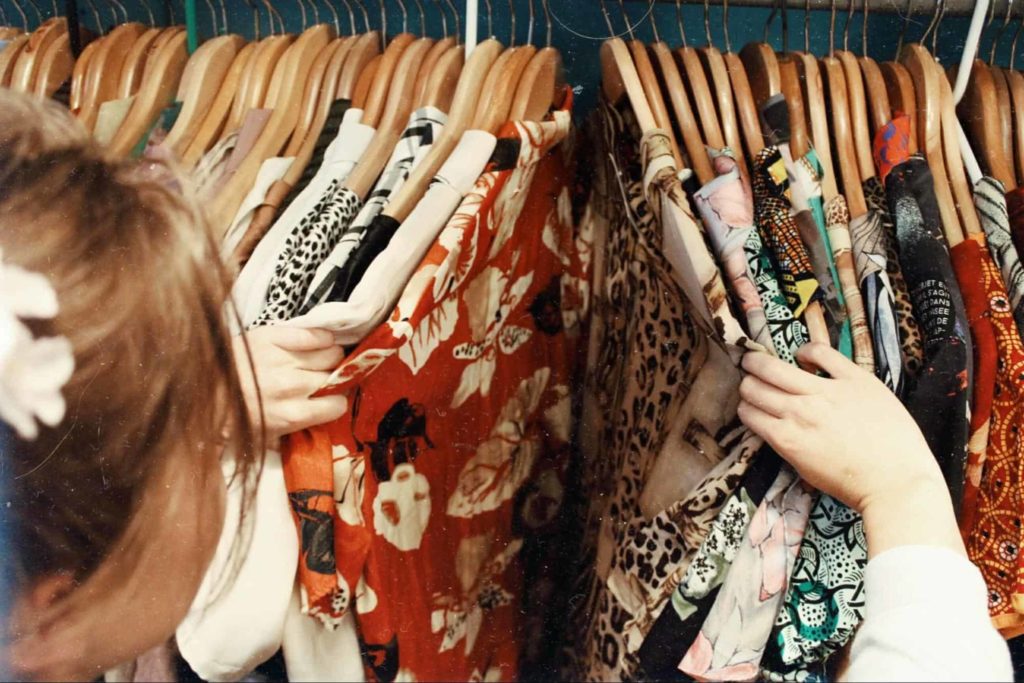
Because of the diversity of Malaysia, different religious and cultural customs should be considered. It is important in Malaysia to observe public behavior and dress codes, even for tourists.
First, Malaysia is quite a conservative place so you must wear decent and appropriate but casual clothes when you are in Malaysia.
Monasteries, mosques, and temples are sacred places of worship so it is disrespectful to dress inappropriately.
Men should also wear clothes that cover the elbows and knees. Women are expected to cover their heads with a headscarf and wear clothes that cover their shoulders, arms, legs, and knees.
Second, while it is okay to wear swimwear and bikinis on the beaches, you should not walk around in one when you are within the vicinity or in the town. This will offend the locals.
Third, avoid public displays of affection because it is frowned upon and discouraged in Malaysia. You will even see signs around that warn against hugging or kissing your significant other because showing displays of affection in public is unacceptable.
Tourists are expected to follow this and not go overboard with being affectionate in public even if they may have some leeway as they could be fined.
This especially goes for same-sex couples because homosexuality is still illegal in the country, so they should be careful in showing public affection.
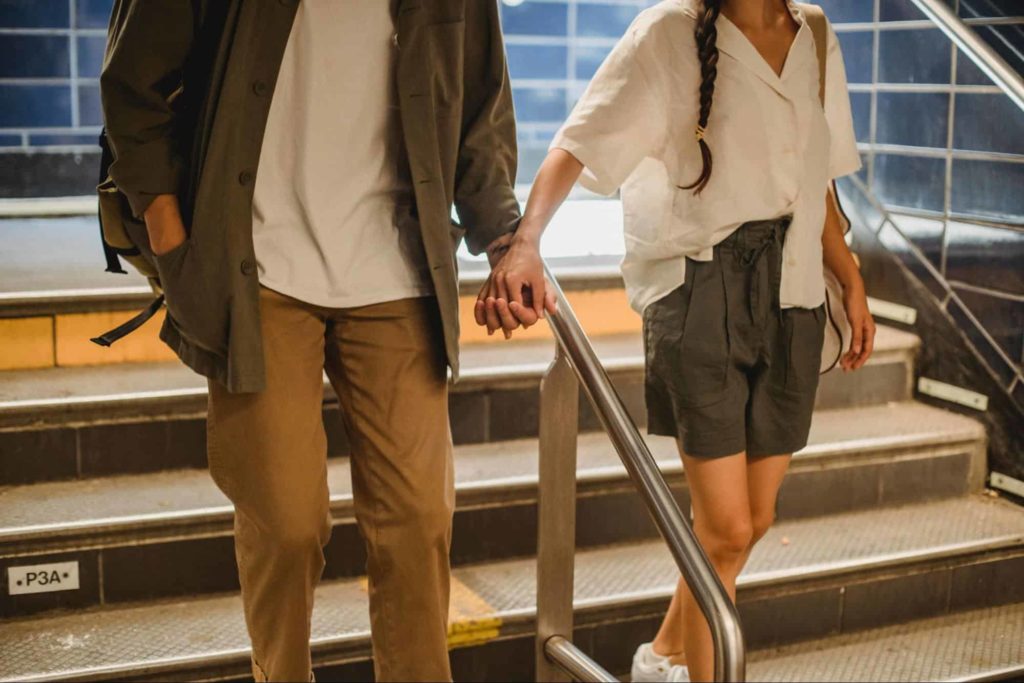
Fourth, you should also never blow your nose at the table because it is disrespectful and it will disgust your peers. If you get a runny nose because of a spicy dish, be more discreet and leave the table or room if you need to blow your nose.
Lastly, it is unacceptable and rude to cross your legs in front of the elders or hosts, especially if you are a woman. You also have to be mindful as to not step over a person who crossed their legs on the floor.
Things You Should Not Do in Malaysia
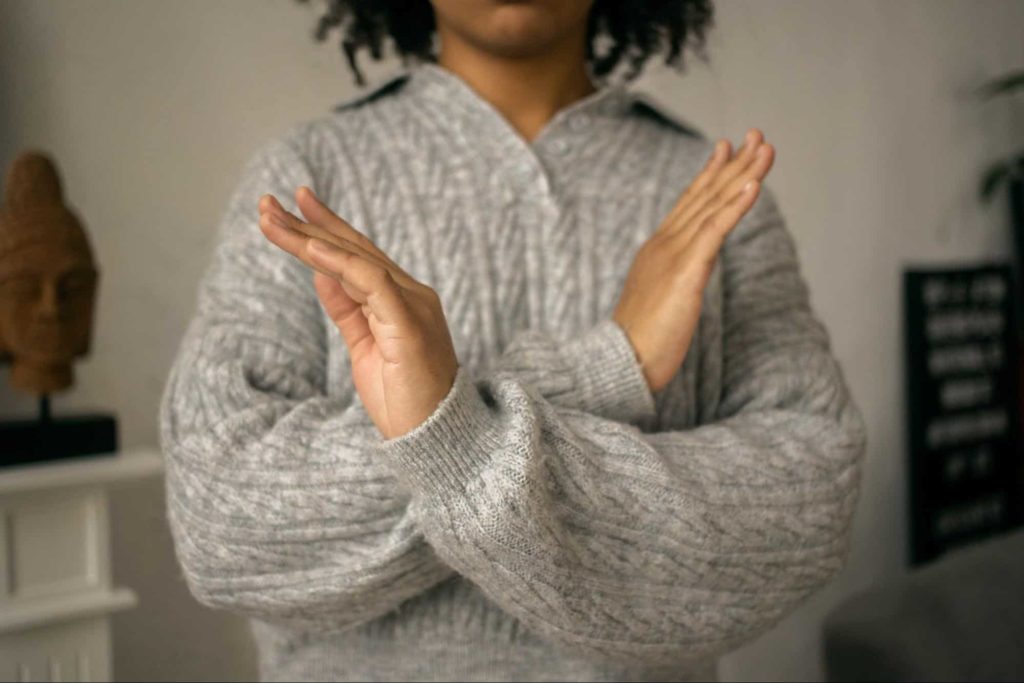
There are also different local etiquettes that you should observe depending on the occasion, location, and social event. Knowing these will be handy for tourists when they travel to Malaysia.
Here are some tips on what you should or should not do:
Do not wear a hat when in sacred places and another’s home.
Taking your hat off is one of the Malaysian customs, especially when entering religious structures like temples and pagodas, in addition to giving a small donation.
You must also remove your hat or cap before you enter someone’s house or place of work.
Do not wear your shoes in someone’s home.
Another important custom in Malaysia is taking off your shoes before you enter a house or apartment. Therefore, as a way to show respect and politeness, you should follow this custom.
This custom is also sometimes observed before entering restaurants and shops. As a general rule, you should take off your shoes if you see a pile of them outside a shop door.
Do not touch someone’s head.
In Malaysian culture, touching someone’s head is considered inappropriate, extremely rude, and even unusual, since it’s considered the most sacred part of the body.
Think twice in case you have an impulse to touch someone’s head! It does not matter if the other person is a child and you want to give them an affectionate pat on the head, or if it’s an elder you’re concerned about.
Do not point with your forefinger.
The right forefinger is considered rude in Malaysian culture because it is associated with hostility and it is used to scold or boss around someone.
If you need to point at something, you should use the thumb on your right hand, with the other four fingers folded under it. Meanwhile, if you want to point in a direction, you may choose to go with an open palm.
Do not show the bottom of your feet.
Malaysians regard the feet as the dirtiest part of the body. It is why the bottom of your feet cannot be pointed towards anyone, especially at religious statues and relics.
You also should not show the soles of your feet to anyone, nor should you put them up on the table.
Do not shake hands with the opposite sex.
Malaysia is predominantly Muslim. There are restrictions on the interaction between a male and female who are not family members as physical contact between them are discouraged.
It is common to shake hands when greeting someone of the same gender. However, if you are shaking the hands of the opposite sex, you should know that the female should initiate the handshake.
If you are a male who is greeting a female Malaysian, do not initiate the handshake. Instead, wait for the woman to extend her hand for a handshake first. Men can also decline a handshake from a woman and they may choose to bow their heads respectfully.
Do not receive or eat with your left hand.
In Malaysia, it is a custom not to handle objects with the left hand. This is because the left hand is deemed unclean or, related to a lack of trust, and used for cleansing and activities in the bathroom.
If you are receiving or giving something, you should use your right hand. It is also considered more polite to pass or receive objects with both hands.
You cannot give or accept using your left hand. You also should avoid picking up an object from the table with your left hand.
When receiving a business card, you could accept or give it with both hands as a sign of respect.
Part of the dining etiquette is that you should never use your left hand if you eat with your fingers. Always use your right hand.
What to Prepare for Your Malaysia Trip
When planning a trip to Malaysia, you should not forget to pack the essential travel items that will make your trip hassle-free.
Here are a few tips that will help make preparing for your trip easier:
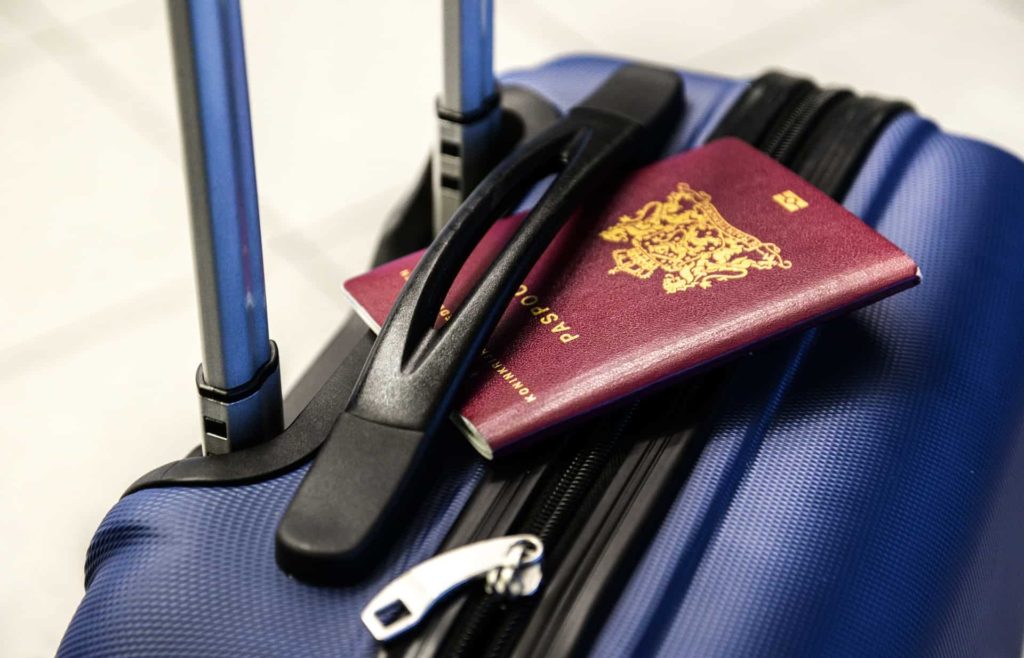
You should prepare for a hot and humid climate.
Malaysia is a year-round tropical country. It is most likely that you will experience hot and humid weather during your trip, so you should dress accordingly.
You should bring with you lightweight, airy, comfortable, and casual clothes that will be appropriate for the heat. It would be better if the clothes you will wear are made from cotton and those that are loosely fit.
It will also be handy to carry with you a light jacket when you are in air-conditioned establishments or on buses.
Aside from breathable clothes, you should also bring flip-flops and comfortable walking shoes because of the amount of walking you would do under the sun.
You should remember that Malaysia is still largely and traditionally conservative. While you should dress casually, your clothes must be modest.
While foreign tourists are not expected to dress the same as the locals, it is polite to still wear decent clothing that does not show much skin. It is especially needed when you go to religious establishments.
Meanwhile, you should consider a one-piece bathing suit and knee-length swimming trunks when you are in public swimming areas to also show respect to the locals.
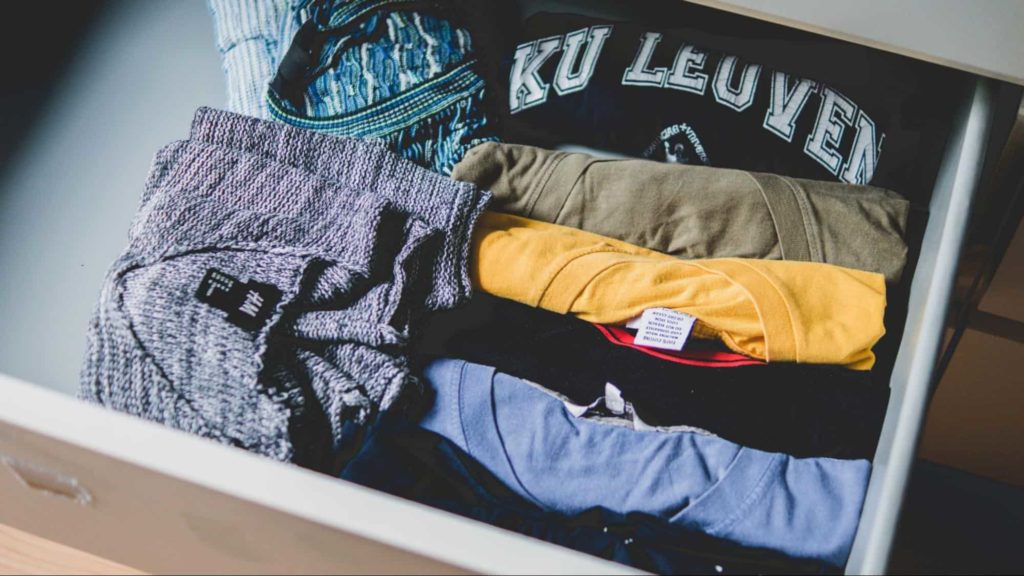
Bring necessary gear for certain activities.
There are plenty of great rainforests and mountains where you can go hiking and stunning beaches and islands where you can try out water sports activities in Malaysia.
If you are planning to go on these adventures, you should bring your hiking gear, or scuba diving and snorkeling equipment, if you have any.
You can rent these in most places, particularly in major destinations. However, you may encounter some locations that do not rent equipment.
If you are thinking twice, you should inquire with the headquarters where you will try the activity before your trip about the availability of equipment rentals.
Secure permits before your trip.
In connection with the adrenaline-rushing activities you can do in Malaysia, you need to secure permits to be able to do them. This applies whether you want to go hiking on a mountain, trekking in the jungles, or scuba diving on the islands.
There are destinations like Taman Negara where you can secure permits on-site.
However, some famous tourist destinations give only a limited number of permits that book up quickly, like Mount Kinabalu in Kota Kinabalu or Sipadan Island in Sabah.
Before you go on a trip to Malaysia, you should try securing the permits you will need for these activities to be able to do them.
Prepare for your visa requirements.
Before going to Malaysia, you need to check first for visa and travel requirements.
The visa system in the country is quite simple. Many nationalities can avail of a free 30-day or 90-day visa in Malaysia which means that most citizens do not need to apply for one.
To avoid issues at immigration, you must check for the policy that will apply to your nationality to know whether you will need to apply for a visa beforehand. Just to be sure, you can contact the local Malaysian embassy in your country regarding this.
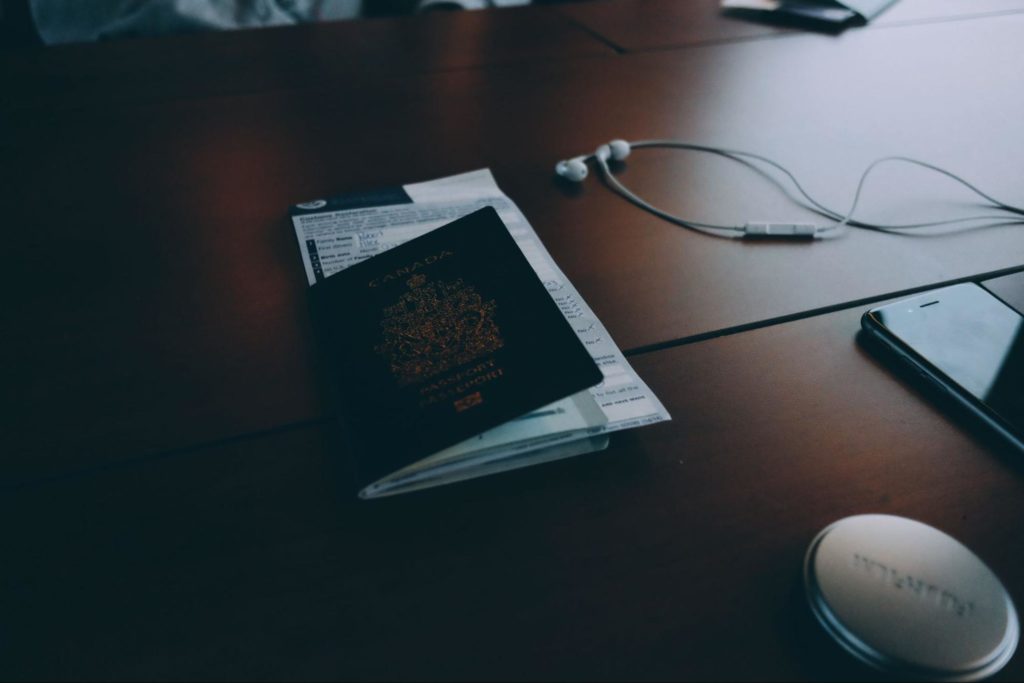
Health and Safety Tips for Tourists in Malaysia
Malaysia is generally a hygienic and safe country, but, as a tourist who will wander around a lot, you should also be careful and alert.
Prevention is better than cure. We listed some tips that will help you be healthy during your stay in Malaysia.
1. Do not forget to bring mosquito repellent.
Bring and use insect or mosquito repellent because it is inevitable to encounter mosquitos wherever you go, especially in the jungles. Mosquito repellents are more expensive when bought in the towns of tourist attractions, so pack one before your trip.
Malaria, dengue, and other insect-borne diseases are a bit prevalent in Malaysia. As a precaution, you will need to use these repellents and wear clothes that will cover your arms and legs.
2. Get the necessary vaccines.
Tourists who are going to Malaysia are recommended to get vaccines against Hepatitis A, Typhoid, and Tetanus.
3. Do not forget your medication.

Over-the-counter medicines, rehydration tablets, and painkillers are available in local pharmacies, but you should stock up and pack your prescription or specialty medicines.
There are strict rules that are implemented in Malaysia regarding prescription and non-prescription medication, so you must check first if it is legal to bring your medication.
4. Keep yourself hydrated.
It is hot and humid in Malaysia, so you should keep yourself hydrated. Drink plenty of water, particularly when you go trekking in the jungles and rainforests, or when you hike in the mountains.
5. Be cautious about the water and food.
Drink only boiled tap water or bottled water, and do not eat undercooked food, to avoid foodborne, waterborne, and other parasitic diseases. To be safe, order hot and cooked food and make sure they are clean.
6. Be careful around animals.
Wildlife spotting is a fun activity to do in Malaysia, but be cautious when near or when interacting with animals.
Rabies is common in Malaysia so avoid contact with dogs and monkeys. It is fatal if you get bitten or scratched by an animal, so you should immediately get medical help.
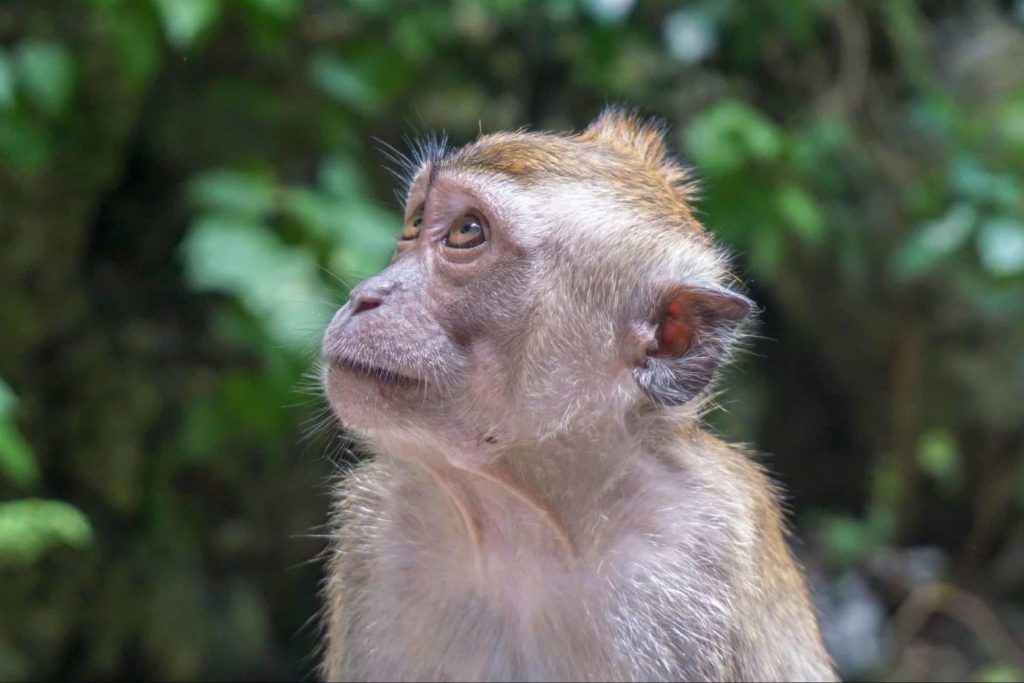
7. Avail travel insurance.
When you go to Malaysia, it is essential that you have travel insurance.
Petty crimes are common in cities like Kuala Lumpur, so you should have your belongings covered against loss. Your insurance should also cover adrenaline-pumping activities should you try one out.
8. Be mindful of your things and your surroundings.
You should safeguard your belongings when you are walking in public stations or shopping centers. Do not leave your things around or flaunt them in public to avoid attracting pickpockets and snatchers.
Credit card fraud is also common, so don’t take your eyes off it when making purchases. Another common occurrence is drink and food spiking, so don’t accept food items from strangers and don’t leave your meals unattended.
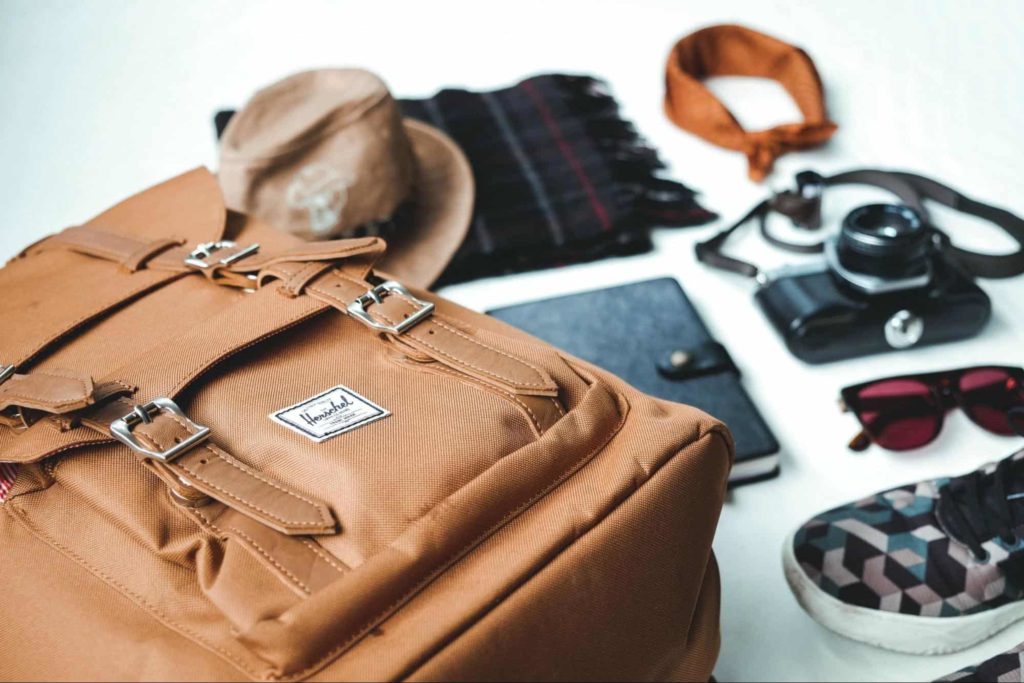
9. Call 999 for emergencies.
In case of emergencies, you can call 999 through your phone which will easily connect you to the police or fire department. You may also contact the ministry of health and the maritime enforcement agency through this number.
COVID-19 in Malaysia: Travel Restrictions and Requirements
The qualifications to enter Malaysia vary depending on your vaccination status:
- If you are fully vaccinated, you can easily enter the country.
- If you have not yet received full vaccination, you need to undergo a pre-departure test and take another test upon entry into the country.
- Before your flight: Download on your phone the app called MySejahtera (also called MySJ Trace) and set up a profile immediately. This app helps the health authorities in contact tracing.
- Before arriving in Malaysia: Fill out the Departure Form in the app. Some airlines will not allow you to board unless you answer the form.
- Upon your arrival: Update your health status in your profile since authorities might do random spot checks.
- Bring masks with you because some premises may require wearing one, like in healthcare facilities and on public transport.
- What should you do in case you test positive for COVID while in Malaysia?
- Update your MySejahtera profile.
- Inform the concierge of your accommodations.
- If you are experiencing mild or moderate symptoms:
You may be asked to go on self-isolation. By the fourth day, you would be taking an RTK-Antigen test and if you test negative, then your isolation would end. - If you display severe symptoms and you are a foreign tourist:
You would be asked to be admitted to a private medical facility where you need to pay for the expenses.
- Update your MySejahtera profile.
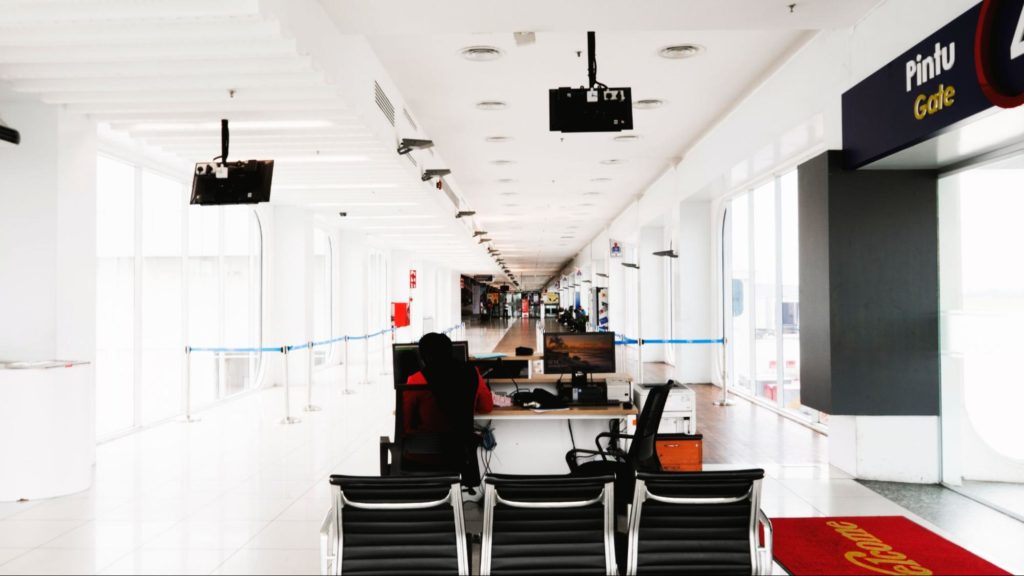
Our Final Thoughts for Tourists Traveling in Malaysia
Going to a foreign country for a vacation or quick getaway is fun but a tourist should know the culture and customs of the place they are visiting. This is so as not to cause trouble and not to offend the locals.
The same applies if you are traveling to Malaysia. Before booking a flight and packing your bags, make sure that you know the local customs and etiquette.
This tropical paradise is generally a safe place to travel for tourists but it is still better to know how you can have a safe trip here.
With these tips for tourists in Malaysia, your trip will surely be enjoyable and unforgettable!
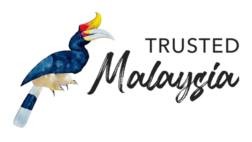
![10 Things You Must Not Forget When in Malaysia [2023]](https://www.trustedmalaysia.com/wp-content/uploads/2023/01/10-Things-You-Must-Not-Forget-When-in-Malaysia-2023.jpg)
